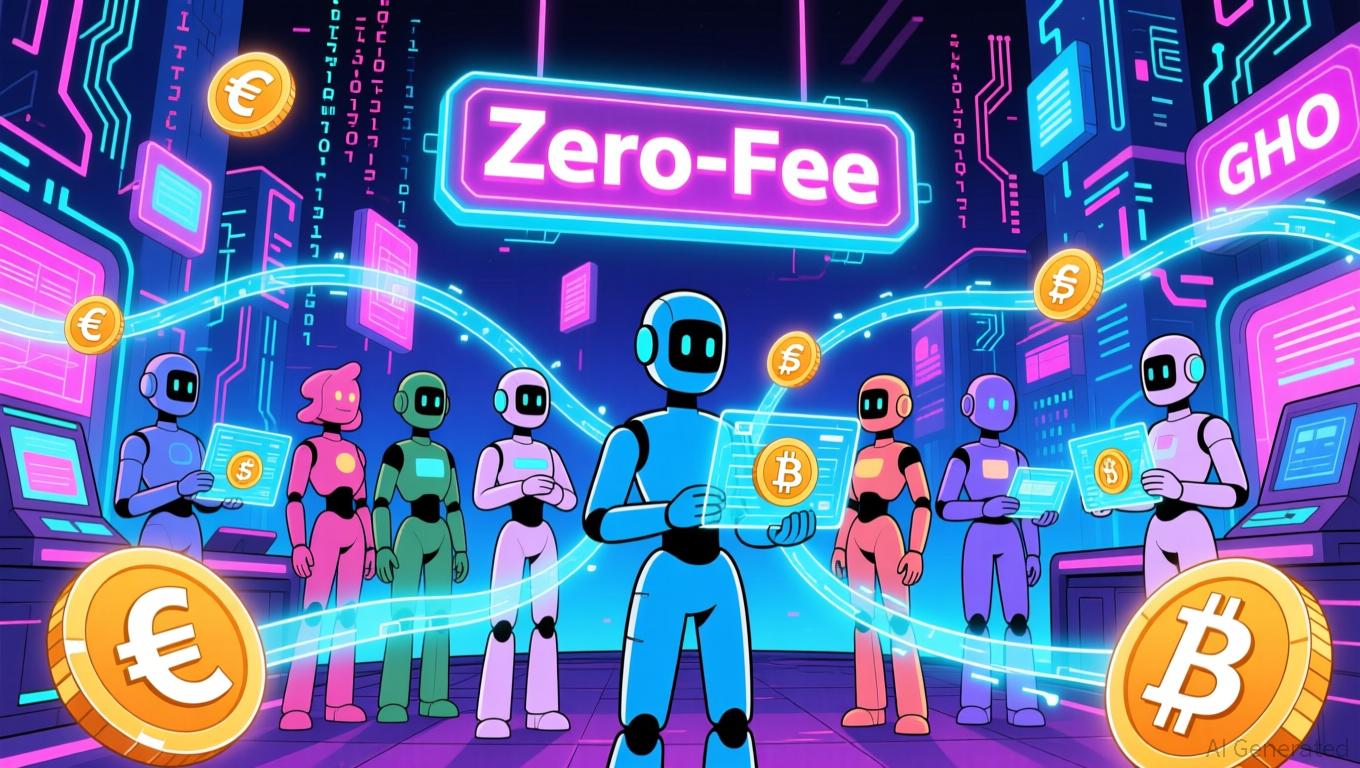Breaking Down Barriers in Blockchain: Brevis Handles 130 Million zk Proofs Each Month
- Brevis, a Web3 platform, processes 130M monthly zero-knowledge proofs via its zk coprocessor network, addressing blockchain scalability and interoperability challenges. - Its architecture offloads computation off-chain while verifying on-chain, reducing gas costs and enabling cross-ecosystem trustless logic through "chain fence" elimination. - With 97K+ users, 30+ global partners, and optimized parallel processing, Brevis aims to establish a foundational zk data layer for real-time smart contract verific
Brevis, an innovative Web3 platform, is transforming the blockchain sector through its zero-knowledge (zk) coprocessor network, which handles more than 130 million zk proofs every month. This milestone, as noted in
The platform’s swift growth is reflected in its community of over 97,000 users and 30 international partners, which include leading blockchain initiatives. Brevis’ system shifts heavy computation off-chain while confirming outcomes on-chain, which lowers gas fees and boosts efficiency. This approach empowers developers to run advanced calculations without straining blockchain resources, all while ensuring openness and reliability. According to the same report, Brevis’ capability to break down “chain fences”—the boundaries between different blockchain environments—has cemented its leadership in the zk field.

From a technical perspective, Brevis utilizes parallel processing and refined circuit designs to deliver highly efficient computations. Advances in hardware have pushed proof generation to unprecedented speeds, allowing the platform to maintain a balance between privacy, security, and performance. While the company highlights its collaborations with key industry figures, the analysis does not disclose specific partners. These alliances, together with rising interest in verifiable computation, have propelled Brevis’ adoption.
Looking forward, Brevis intends to become a core infrastructure layer for Web3 by connecting decentralized platforms. Its zk data layer supports instant verification of off-chain computations for smart contracts, simplifying workflows for developers. The platform’s achievements have already drawn global interest, with its user base approaching 100,000 and new partnerships forming regularly. Experts believe Brevis’ methodology could redefine standards for decentralized computation, making it both practical and lucrative, as the report concludes.
Disclaimer: The content of this article solely reflects the author's opinion and does not represent the platform in any capacity. This article is not intended to serve as a reference for making investment decisions.
You may also like
Aave News Today: Aave’s No-Fee Initiative Brings DeFi Access to All Across Europe
- Aave Labs secures MiCA approval in Ireland, enabling zero-fee euro-to-crypto conversions via its Push service across the EEA. - The fee-free model challenges traditional fintech and CEXs, aiming to reduce DeFi adoption barriers by eliminating transaction costs. - Ireland's regulatory environment attracts DeFi firms like Aave, following Kraken's MiCA authorization and Aave's Stable Finance acquisition. - With $312B stablecoin market cap in 2025, Push's $542M 24-hour volume highlights its role in scaling a

Post-FTX digital asset exchanges simplify futures offerings to comply with regulatory requirements
- Binance delisted RUNEUSD futures to align with post-FTX regulatory demands and evolving user preferences. - The move follows industry-wide transparency efforts like proof-of-reserves initiatives after FTX's 2022 collapse. - Post-FTX trends show growing demand for DeFi solutions and institutional-grade crypto products with enhanced compliance. - Challenges persist in balancing innovation with regulation as exchanges like Binance recalibrate strategies amid shifting market dynamics.

Bitcoin News Update: Bitcoin's Death Cross and Global Political Strains Raise Bearish Concerns, Yet Institutional Activity Inspires Optimism
- Bitcoin's recent $105,000 drop triggered bearish signals like the "death cross," raising concerns about a prolonged downturn amid weak institutional/retail demand. - ETF data shows mixed investor sentiment, with $1.1T inflows in U.S. Bitcoin ETFs but $2.5B outflows from Grayscale's Mini Trust, highlighting market fragmentation. - U.S.-China Bitcoin dispute over 127,000 stolen coins and frozen liquidity exacerbates uncertainty, while DeFi integration and miner diversification offer structural support. - A

Bitcoin News Update: Institutions Reduce Bitcoin ETF Holdings, Boost Solana Investments Amid Rising Altcoin Interest
- Bitcoin ETFs saw $870M outflows as institutions offloaded positions amid macroeconomic uncertainty and profit-taking pressures. - Ethereum ETFs lost $438M while Solana-based products bucked trends with $118M inflows, reflecting growing institutional demand. - U.S. ETFs recorded $1.22B outflows, contrasting Germany/Switzerland inflows and gold/energy sector gains of $363M and $427M respectively. - SEC's in-kind redemption rules reshaped institutional Bitcoin ETF participation, with Blackrock's IBIT holdin
